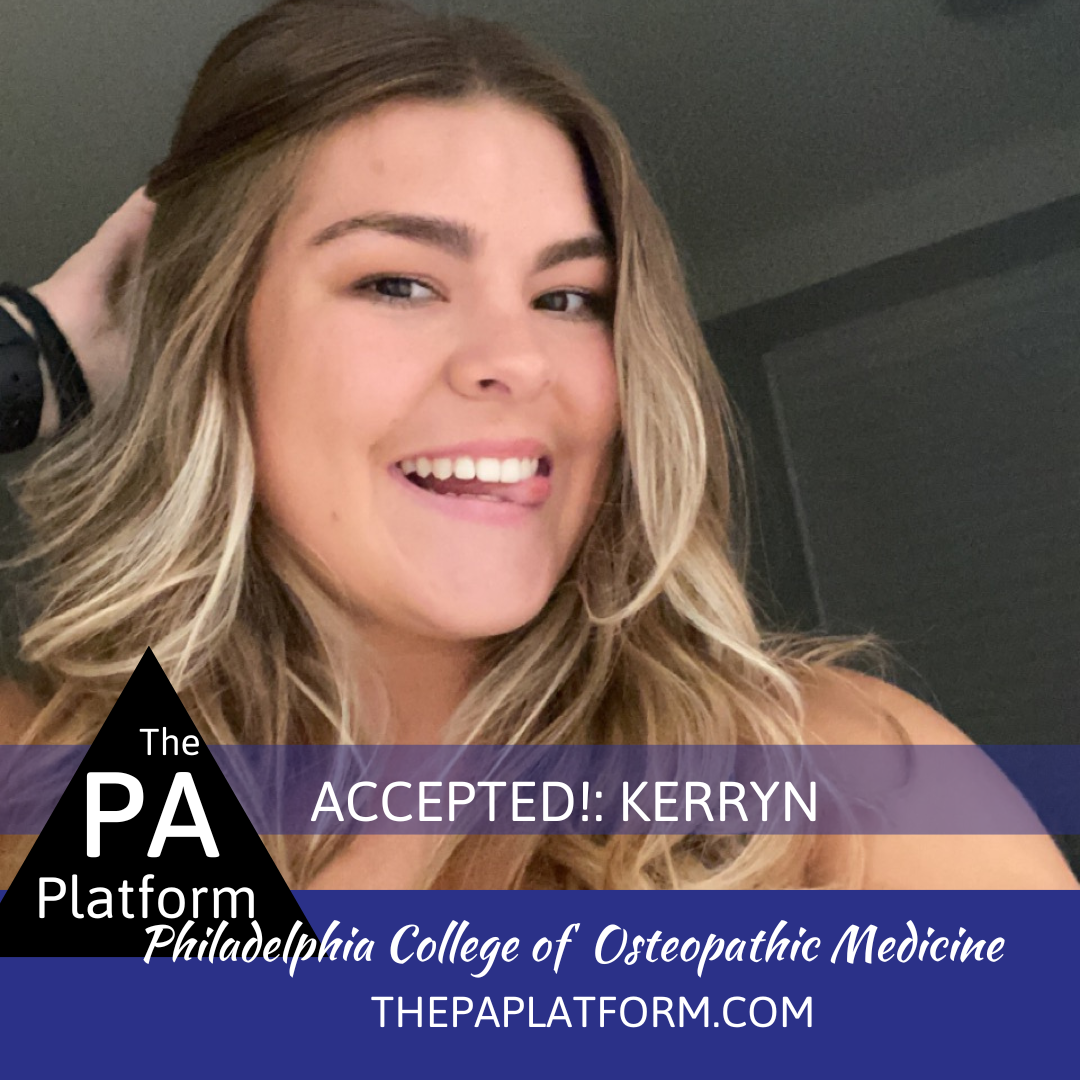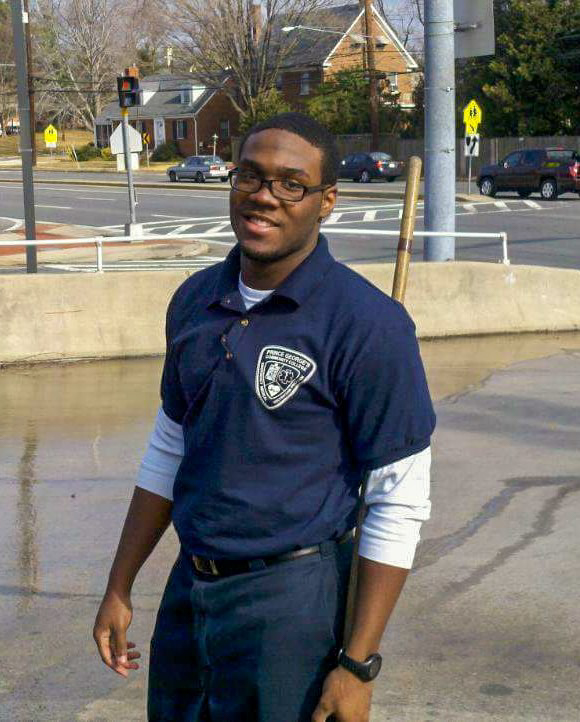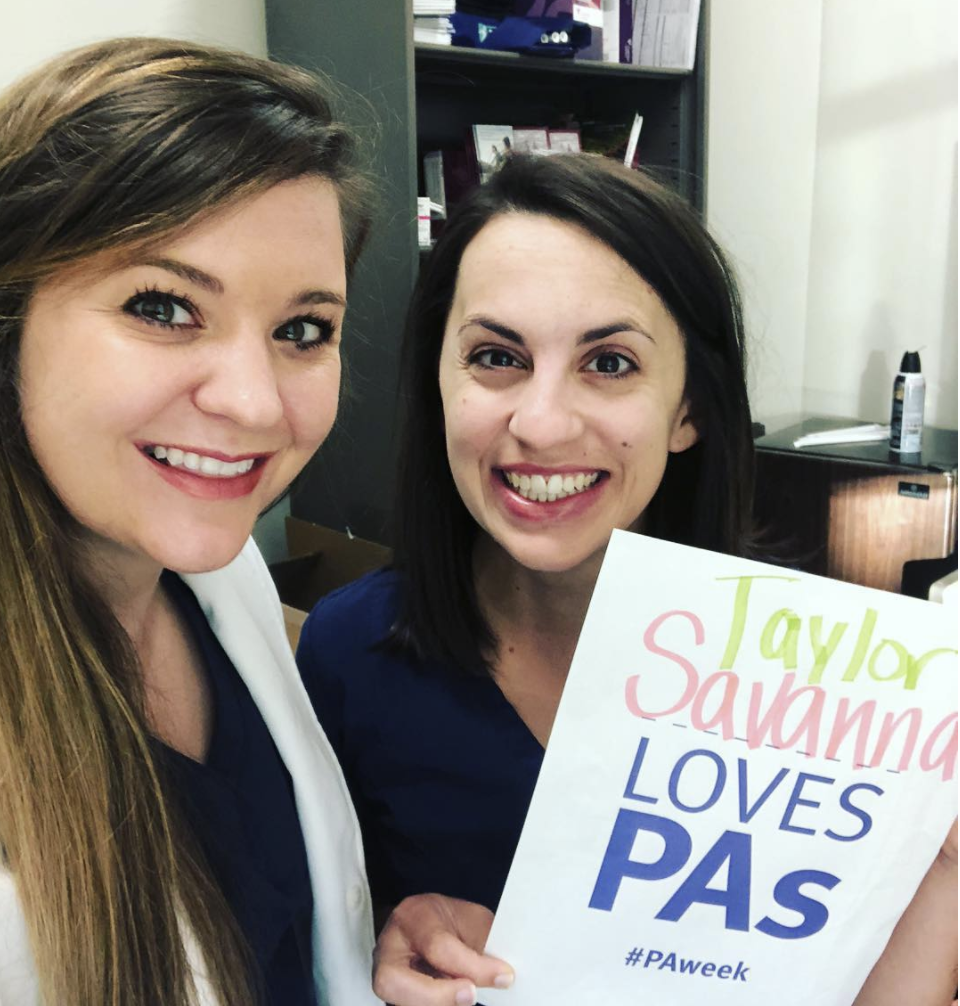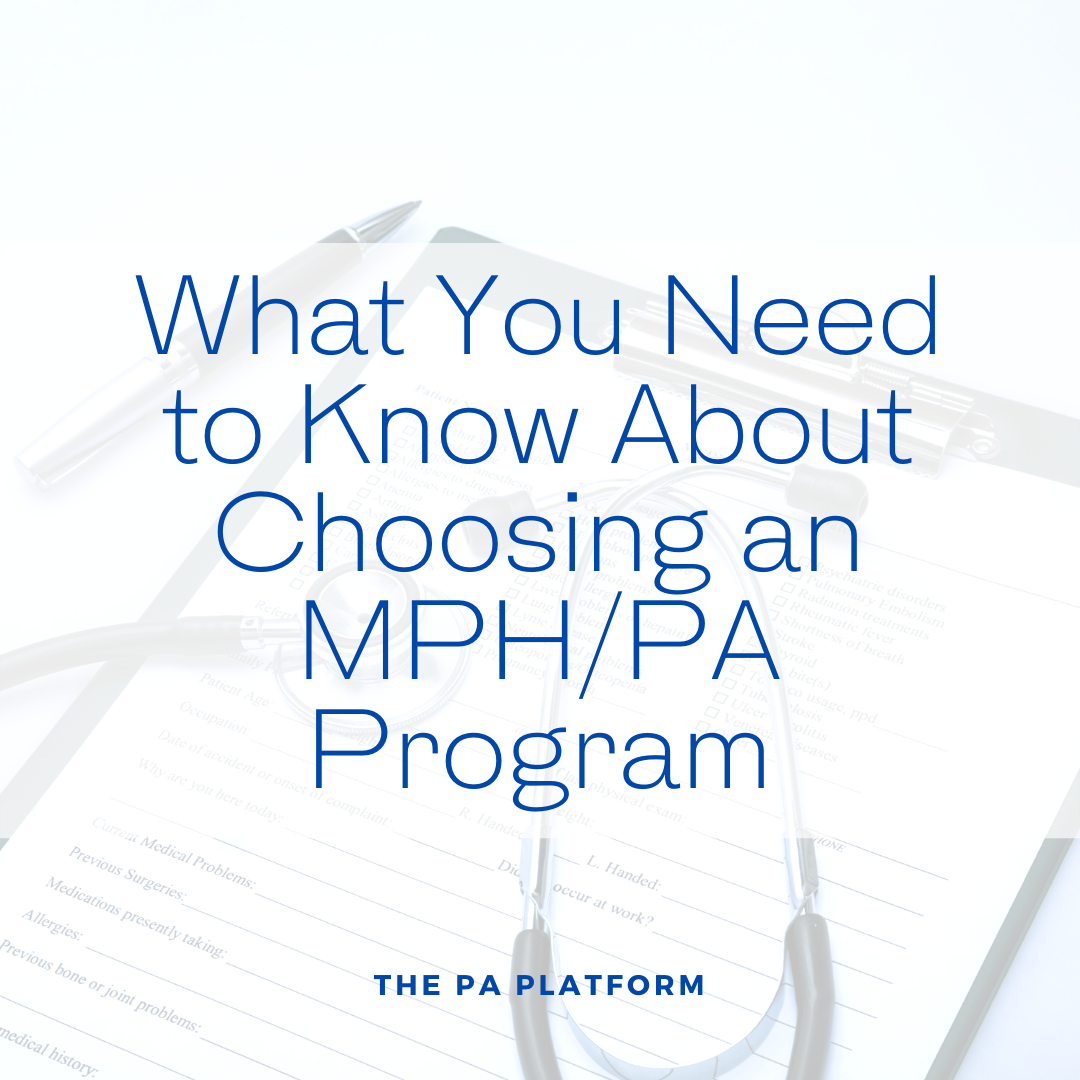I’m so excited to share today’s episode because it has personally inspired me to consider what we, as PAs, can do to serve patients and people more. I'm chatting with Eryn and Ashley from @handsofesperanza, a non-profit providing healthcare to rural areas of Guatemala. Listen to the story of how this organization was born out of a PA school mission trip, but has become such an asset to the Guatemalan community. If you’ve been curious about global health or medical missions, we have some great ways for you to consider getting involved. Learn more at https://www.handsofesperanza.org/.
This blog post can also be listened to as a podcast episode on The Pre-PA Club Podcast. Listen to it here!
Ashley: I’m Ashley, I’m a physician assistant in Atlanta. We all went to PA school in Nova Southeastern University in Orlando, FL. I went into surgery, and had a couple of different experiences but I currently work in transplant and hepatobiliary surgical-oncology, which is a mouthful, but that's where I practice now. And today, we want to talk about our mission work and our nonprofit in Guatemala.
Eryn: My name is Eryn, I live in Tampa, Florida, and I currently work in the emergency room as a PA, a little easier to say haha. I also went to Nova Southeastern University in Orlando, and I'm also working on the same mission with Hands of Esperanza!
Savanna: Great! So when did y'all graduate?
Hands of Esperanza: We graduated in 2016 and 2018.
Savanna: Okay, and I was ’14, awesome! Can one of you give me the mission of Hands of Esperanza, and how it got started.
Ashley: Sure! So we have been kind of a group collectively for the past five and a half years. We started this mission trip my very first year in PA school in 2014, because when we all came to NOVA, we didn't have a mission trip. A lot of us felt very passionately that we wanted to do something and were interested in global health, at least in when we had more free time during divided breaks in between semesters. We were like, this is something that we would like to create and make a legacy at our program. So we started brainstorming, and we had a few very trusted advisors at the program at the time. One of our professors there she said they do medical work in Guatemala with her church, we trust the people there, and we have an organization that we work with, if that’s where you guys would like to go. So that's where it all started. So we took our first mission trip there in 2015, after we finished our first didactic year. We had about 20 students go. We had one PA and one nurse who went with us. So we did three days of remote rural clinics, and then we did a few days of volunteering in hospitals, seeing the local orphanage there. Immediately after we went, a handful of us said that this is not something that we can walk away from, never come back to. This is something that we felt like would be part of our lives for forever, to be quite honest. So the next year, that class overwhelmingly was like, we want to go back to where you guys went. Let's make this a legacy. Eryn’s class was the third class that went.
Fast forward to June 2019, we were able to form our own non-profit, which is called Hands of Esperanza. We did that because we are fundraising for our largest project in Guatemala, which is to build a multi-specialty medical and surgical center within the community that we serve that will allow us to provide more sustainable access to health care for the patients that we treat. Because right now, we hike to the villages. We carry all of our medical supplies, and we do this because we're young and healthy right now, but some of us are turning a little older, and our patients are a little older too! One of our oldest patients is 80, and it's very difficult for them. They do this every day, when they need to get somewhere, but we would like to be able to provide them with the opportunity to come and see us in a more accessible environment year round when our groups like ours are unable to be there. And I'll let Aaron talk a little more about it too because she has been involved since pretty much the beginning of the organization.
Eryn: Yeah. It's actually really crazy one of the reasons I went to PA school was so I could do global medicine, start going on mission trips, and make an impact, not only in the United States, but in other countries as well. And I remember Ashley came and presented to our class trying to promote the mission trip, and I was so amazed! And PA school gets so crazy, we’ve all done it, I was like, “how will I fit in this mission trip?!” on top of all of this studying and everything. So I originally decided not to go. I was thinking about it for weeks, and I was like, “I can’t not go; this is why I went into medicine.” And then once I saw Guatemala and saw the work that they were doing over there, I have not been able to leave it. So, that's how my role got started. Once I went for the first time, I just knew I couldn’t not go back. So I went back last year, and the year before that as well.
Savanna: So how many times a year are y’all going to Guatemala?
Hands of Esperanza: Right now, just once a year. Every August we go for like 10 days, but probably with the clinic, we will start going more often because we'll have more opportunities and a stable set-up. We actually have the infrastructure to be able to do that. It's difficult for us to be able to bring groups that can do a little bit less with their mobility; we're asking them to bring in all this equipment to do more advanced things that require more surgical equipment and things like that. We have a cleft palate group that comes right now, and that's obviously not something that you can bring to a very remote area. It requires a lot of equipment, a lot of anesthesia, things like that. So when we're able to actually bring groups into the clinic, we'll have more groups coming more times of the year that will be able to provide more specialty care. In addition, we actually have people in Guatemala; we have local doctors and nurses that have offered to provide services at the clinic for free or reduced prices at no cost to patients. And so that's something that we're really excited about too! We really want to go more than 10 days out of the year, but that’s just not possible haha.
Savanna: So what happens on your mission trips? I've been on a couple; I went to Kenya and El Salvador. And it’s hard to explain exactly like what to expect, but what's kind of the breakdown of the trip?
Hands of Esperanza: Great question, so ours is pretty unique. We've already touched a little bit on the remoteness of the clinics and how we set up. But for us, what we really wanted to do was offer the PA students an opportunity to be able to see patients and kind of use this as their first clinical experience because they're doing this in between their didactic here and their clinical year. So, they've learned everything right? You studied everything; you know how hard PA school has been and how many books you've read. And so this is really their first opportunity to use all those physical diagnostic skills and everything.
The first day we get there, we hike to a remote village. It depends on the length, but usually the Guatemalans take about half the time that it takes us haha. So we get there, unpack, set up rooms, try to triage patients into an area they need. We have primary care, pediatric care, and an OBGYN room. And we go from there. We typically see me around 200 to 300 patients a day, depending on how many show up. It’s not a steady flow; it’s usually these bursts of people because they're walking from different villages and it takes them like three to four hours to walk there. And sometimes people are waiting for us when we get there first thing in the morning. So it can also be kind of chaotic!
Once the students kind of get the hang of things, over the course of the week, it does become more organized. We are able to do 4 of these days. We are most often at a school that is pretty rudimentary; it is 4 walls with open air, a dirt or concrete floor. We set up exam stations on desks the students normally use. If we are lucky, they will have tables and chairs. And we tell students, you know, you're not going to have lab values, you're not going to have x-rays, you're going to have to go based on a lot of your history-taking ability and your diagnostic skills. So, that's really a good learning experience for them there.
Then after those 4 days, we actually have a full day where we go volunteer at a hospital. And so they get to participate in emergency room triage and acute care, participate in labor and delivery, and scrub into some surgeries! One of our members got to scrub into a surgery, and she actually went into surgery as a PA, which I don’t know if that’s why, but it was actually really cool. They also get to see the inpatient side of things; they'll participate in rounds and stuff like that. For the most part, that's the actual mission work that our students are able to do.
We also do some stuff while we're in the villages, as well. So, our main focus is medicine, but one of our other focuses is actually building stoves. We see a ton of respiratory problems! Because their only option right now is to cook on an open flame, and they're constantly breathing in smoke. So one of our projects is building these stoves that have actual chimneys and allow the smoke to escape from the house. We built 25 stoves last year, and we have been there for 4 or 5 years, so we have definitely made an impact in this way. And then we'll also paint the school, really just do whatever they need help with in the village with our extra manpower we have. We've also built some water filtration systems because a lot of them have worms or different illnesses stemming from the water because they don’t understand that boiling the water is healthier. So we built this filtration systems, and those will last for about 20 years. And once we are able to install it, then we educate them on how to use it. And I'm glad Eryn brought that up because we try to give them preventative and public health education, which is really important! And these patients don't actually speak Spanish; most of them speak a Mayan dialect called Poqomchiʼ. So, this adds to the complexity of what we're doing there. Going from 95% of our volunteers only speaking English, so we go from English to Spanish to Poqomchiʼ. There are also 2 other languages spoken there! So, if you get one of those stations, you have to find an even more unique translator. But it’s a very unique experience. Our students come back from this trip saying, “Oh my gosh, how is this even something we are allowed to do? This is so cool; we really think this is a mission trip we haven’t been on before, and we don’t see with other programs.” So we're very thankful that we found it and provide the opportunity to continue going!
Savanna: Yeah, I'm super impressed by just how organized everything seems, like the logistics. This is way cooler than I even thought. And you answered my next question about language barriers too! So i the clinics, what do you all see as far as medical need, like what medical conditions do you see most commonly and how are you actually able to help them from a medical standpoint?
Hands of Esperanza: Like I mentioned before, with respiratory problems, we are able to bring a nebulizer and breathing treatments, which helps a lot. We also see a lot of worms from the water, so we bring deworming medication. And then really one of our main jobs is education. So we are not just handling them medicine, a breathing treatment, and telling them to go on their way. We explain to them why they are feeling that way, teach them they need to boil their water to get rid of worms, and things like that. We also see scabies, and we can’t just treat one person in the family for scabies, so we need the whole family there. We explain you need to boil your sheets and things like that. In summary, a lot of upper respiratory issues, GI issues, lots of aches and pains since they're doing a lot of manual labor. I've never seen someone so happy to just receive Tylenol and a lidocaine patch in my entire life! I’m sure we will touch on it later, but it really speaks to the gratitude of this patient population when you see them smile.
We also take care of some things that require a bit of procedures. We have drained abscesses, removed very superficial lipomas, keeping into consideration where they are going back to as well. We removed someone’s Nexplanon this year too. We have also removed foreign bodies that have caused them a lot of pain while walking and stuff like that. There are a lot of foreign bodies in ears, usually insects.
Savanna: Oh no!
Hands of Esperanza: Yeah! We also have some things you wouldn’t normally see. We had a machinery murmur last year, and all the students came around and listened. So, lots of very interesting things, but most of the stuff is pretty basic. I think the biggest barrier that we encounter is the nutritional problems. We are not going to be able to fix all of that. This is a poverty stricken area; about 83% of the population lives below the poverty line of Guatemala. So telling them they need to eat a healthy diet, stop doing things that are causing you to have GERD, stuff like that, is very simple because they only eat what they have, and they eat very little of it.
Something else that is cool is that I also spend a lot of time in the OBGYN clinic. And we've seen a lot of STDs, and the number of people with STDs are dramatically dropped since we started going there. Because we started treating them and educating them on how they're transmitted. This year, by far, was the least amount of STDs we have had. STD, worms, and URIs we saw a lot less this year! From the time we started five years ago to this year, because it’s a public health initiative and public health education, I do think it’s really made an impact. We will also bring toothbrushes and teach them how to brush their teeth, or we also bring reading glasses. It’s amazing when someone wears a pair of reading glasses, and they haven’t been able to see well in years. They put one on and they will be amazed.
Savanna: That is so cool! Wow. So I’m going to just ask you guys questions I get all the time about mission trips. So what can a PA do on a mission trip? Do you still have to have a supervising or collaborating physician? Are there any just limitations?
Hands of Esperanza: That’s a good question! The barriers we encounter the most with that is when we are in the U.S. ordering medications to take with us. We have to have a physician prescriber sign off and have it delivered to their office, which we do. After we get to Guatemala, we are not required to have a physician accompany us.
We actually have all of our medical licenses registered with the Ministry of Health there, so what we are doing is very kosher. We are not just going into their country and saying, “I’m going to treat you now. My name is so-and-so, and I’m your doctor.” We do not tell them anything that is not true; we tell them what we are, and they understand they are seeing students who are being supervised. The organization we work with there actually takes our licenses and does all of that for us. They make sure the country and the Ministry of Health know we are there.
It’s a little bit different if you are going for a surgery trip obviously; a surgeon and an anesthesiologist or CRNA will probably be required. But for us to practice basic primary care medicine, they do not have any laws requiring a physician there. It’s obviously based on country, but for us it is not.
I don't ever feel like we're lacking in the department; we have so many specialties across the 15 PAs that we have. We have ICU, pediatrics, a lot of ER, a lot of surgery. Everyone is kind of spread out, and we have have people with some background before PA school that helps too. So
We have a wide breadth there. And then we also have physicians that come with us on a trip, but they're usually volunteers. They do add a lot to the trips, but we don’t feel like we rely on them to tell us what to do.
Savanna: Okay great, so are there any opportunities for other students like pre-PAs, undergrads, PA students from other schools, to get involved? I'm already brainstorming all these different ways through fundraising and collecting supplies – I love that this is a PA organization, and what are some practical ways people can help?
Hands of Esperanza: There are so many ways! Honestly, the first way is that people just listen to what we have to say, and they help us spread awareness about our mission. The second way is donation. That could be financial donation, supplies donation, or donation of your time as a volunteer. On our website, we have a list of commonly used over the counter medications and supplies. If you have a question, you can reach out and contact us. You can send us an email to handsofesperanza@gmail.com, very easy to remember. A third way is volunteering time. The organization we work with in Guatemala is called Living to Serve, and they support trips year round. We may be going on medical trips, but they have groups all the time that have different focuses. For example, they have high school students come from churches. It doesn’t matter what your ages are, what your level is, and so on. They don’t necessarily hike to these same villages, so the ability to hike doesn’t have to be there either. There's tons of opportunities, and if people are interested in setting up a trip where they maybe build stoves or water filtration systems, or a volunteer at an orphanage or the local nursing home there. There is a lot of opportunity. If you are pre-PA, and you want to do something with public health education, that is certainly somewhere you could get involved. We can always talk to Rudy with Living to Serve and see if there is an opportunity there. But there are lots and lots and lots of opportunities and we're always happy to field any inquiries if you have one! And honestly Rudy is the nicest human in the whole world, and anybody who wants to help in any way he will find a way to get you there and get a group going!
Savanna: Okay awesome, so definitely spreading awareness which we can do. So how much does it cost to build or install a stove?
Hands of Esperanza: Around $200-250 per stove. They have done research in countries –when people who receive these donations have something invested in the project, they’re more likely to use it. They did this project with mosquito nets in Africa. They just gave our mosquito nets, and when they came back, the residents were using them for all different purposes. They were using them as shopping bags to carry groceries, using them for fishing, using them for all kinds of things, even though they were provided with education and these life saving mosquito nets. So then they asked them to contribute 5% of the cost of the mosquito nets, and suddenly, the use of these nets completely changed. When they came back, the mosquito nets were all being used for their intended purpose.
So that’s one thing about this community – they are incentivized to use the stoves. They are asked to contribute a very small amount, like we said the poverty line is very high here, but they contribute to the stoves, come and pick up the stove material, deliver them to their houses. But the stoves are pretty rudimentary, and they're basically cinder blocks that get stacked. There's a place where you can put the wood, light it, and it heats up. There is a large metal slab on top that has little burners. The area where the wood heats up in the center has an outlet that's a very thin piece of metal, and it goes out of the roots. And then there's a protective wire on the outside. So that’s it! And a lot of the money that the students raise for their mission trip every year contributes to that.
Savanna: How much are y'all anticipating the clinic will cost?
Hands of Esperanza: A conservative cost right now for a two level, multi-specialty clinic, including a surgery center, would be $450,000. We've already purchased the land, and we've already started construction on the perimeter wall. So that was a large chunk of money. Land in Guatemala is not cheap. We have collected $50,000 so far, and we are fortunate that we have a company that wants to double match our donations. So we are very close to our goal in order to double match to get the $450,000. We've got about $100,000.
Savanna: Wow. That is awesome! Oh yeah and that brings up another limitation. So a lot of people worry about the finances of going on a trip like this. Do y'all have any thoughts or advice on how much a trip would cost to go on, and how people can make it happen?
Hands of Esperanza: So ours isn’t that expensive compared to other mission trips. We charge $1,100, including the flight, all the main meals excluding snacks, so everything included! When I was in PA school, I funded that through GoFundMe. Family members and I raised the money pretty quick because when people hear about what we are doing over there, they get pretty excited. But compared to other mission trips I’ve heard about, the price is usually double that. And the fact that everything is included I think justifies this overall. If you're going to go somewhere like Africa or India where there is a longer flight, that is obviously a higher cost. But for us, this was the lowest cost.
Savanna: Alright, so you all said that this is something you see yourselves participating n for life. What do you see as kind of the future for Hands of Esperanza?
Hands of Esperanza: The clinic is in the forefront of everyone's mind right now. That's what we're really focused on. Once we have the clinic, I would love to be able to provide more specialty care for people. We have seen crazy things that we just don’t have the providers to provide for. Maybe it’s something surgically advanced, like a head and neck surgery. We saw child last year who needed craniofacial specialist, and those things are just not accessible in the area. The area we are in is 6 hours away from Guatemala City. There are certain labs that their main hospital is not able to do, it has to be sent to Guatemala City. A TSH result for instance takes 2 weeks. We want to help bridge that gap, whether lab work or bringing specialty care. Those are some long-term goals. We also want to be able to provide sustainable healthcare, preventative care, and screenings. There is a very high rate of death from cervical cancer in this population of women; if we could offer something as simple as free cervical cancer screening, that would be something that could dramatically impact these women. Big long term goals there!
We are also focused on the sustainable products as well just because that's one of my major roles. I was talking to somebody who was brought up in Guatemala when we were there last year, and she made us aware that there are a lot of kids in villages who pass away simply because they won’t latch onto their mothers. So they have no way to feed; they don’t have any formula. So stuff like that would be so simple for us to contribute to. We are looking to get breast pumps donated to help the mothers feed their children who have trouble latching.
Also in the future, we would love to bring more groups of students, especially from other programs. Where I am at in Georgia, there are programs where you can do your OBGYN in Peru. I think that’s incredible and it that offers so much insight. And you are so limited if you only do rotations in America, in your little city in America. Maybe you are like us in Orlando where there are a lot of other programs competing for rotations, so if you are able to broaden what you see and what you are exposed to, maybe that will change who you are as a provider and allow you to think a bit more about what type of patient you are treating. I’m sure Eryn has in the ER in Tampa, but I know for sure in my job in all the areas I have worked in, you have patients that come in who only speak Spanish from Central America. And there’s a piece of me that understands that patient better. I’m not going to be one of those providers that is going to talk over them because I don’t speak Spanish, and they only speak Spanish, and I just go get the translator but we are going to breeze over them. That’s never the kind of provider I want to be. It’s so easy to do that though, if you don’t have that exposure. So long story short, we would love more opportunities for PA students to be exposed to that population! Yeah and PAs too! I just know I’m a completely different provider than I would have been if I was never over there. You just see so much.
Savanna: What is one tip you would give to someone who has never been on a mission trip? I’ll say mine too.
Hands of Esperanza: I would say my biggest thing is just being flexible.
Savanna: Shoot that’s mine too! Hahaha.
Hands of Esperanza: Yeah you literally think you have a certain role, and it’s never that role. We’ll get to the clinic and a triage is just not going to work that day due to the set up of the clinic. We will throw you into a provider role, or throw you into playing with kids that day because there are a lot of kids that day. So just being flexible. And honestly, that’s what being a PA is.
And very similar to that – go into a mission trip being very open minded and not having an expectation. Every mission trip I've been on, this will be my 6th year going on this trip, but I’ve been to other mission trips to other countries, and Guatemala was really different from Ecuador from the Dominican Republic and so on. So just go into it with an open mind, allow it to change you and shape you. I think people will have a really awesome opportunity.
Savanna: Yeah and they’ll probably get more out of it. Mine is along those lines. When I went to Kenya, it was a derm specific trip. Out of the 12 of us, I was the only one who brought a stethoscope. Everyone was like, “we are just seeing derm stuff!” And I was like, “No we are not” haha I can guarantee that. It turned into more of a multi-specialty clinic for those few days, with one stethoscope. All right, well, where can everyone get more information and contact you and all those fun things?
Hands of Esperanza: Yeah our website is https://www.handsofesperanza.org/ Those of you who are not bilingual, Esparanza means hope. We are not necessarily the hands of hope; we think hope is a two way street. When we are there, we hope we give our patients hope, but we also get that from our patients. They give us a renewed sense of faith in what we're doing and how we're practicing medicine. You can find ways to donate and find ways to get involved. There is also a contact button on there. You can email us at handsofesperanza@gmail.com, and our Instagram is @handsofesperanza. We frequently update and would love to have you guys follow. Eryn will be updating as well, so follow along!
Savanna: Well thank y’all so much!














































